Service Learning in Rwanda
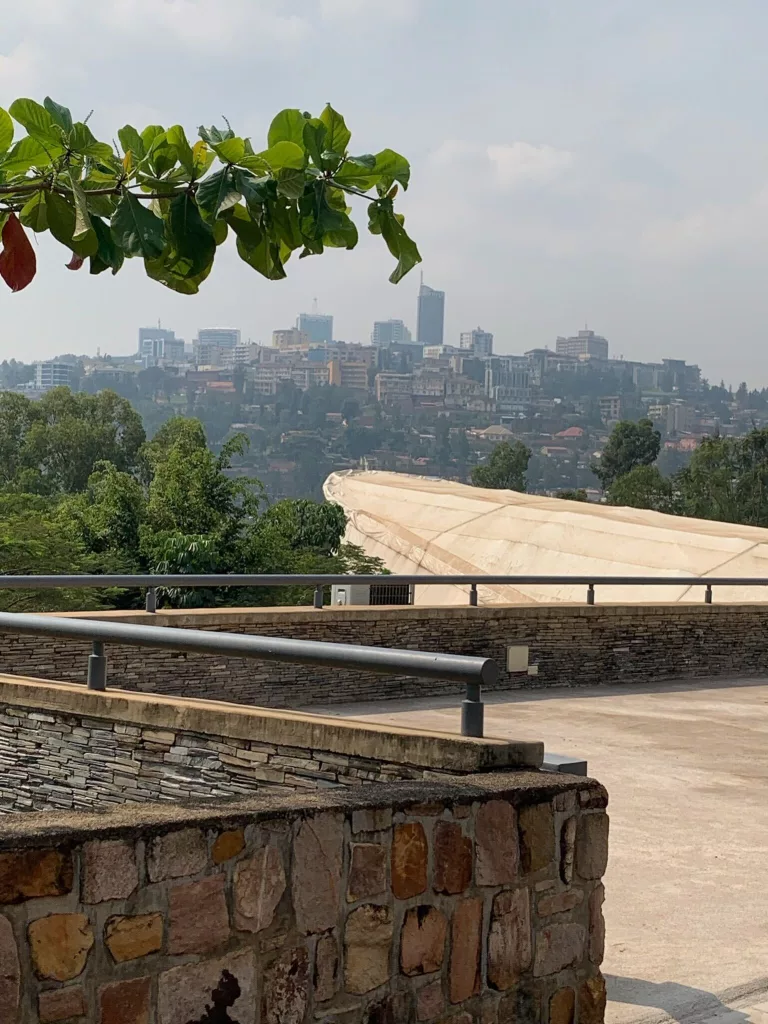
Dani Levine, Director of Social Impact at Hillel International, and Anna Worrell, Social Impact Program Manager, are currently traveling through Rwanda with OLAM as part of the Jewish Service Alliance Trip to Rwanda, powered by Repair the World. Follow this page for updates from their travels.
Thursday, January 19
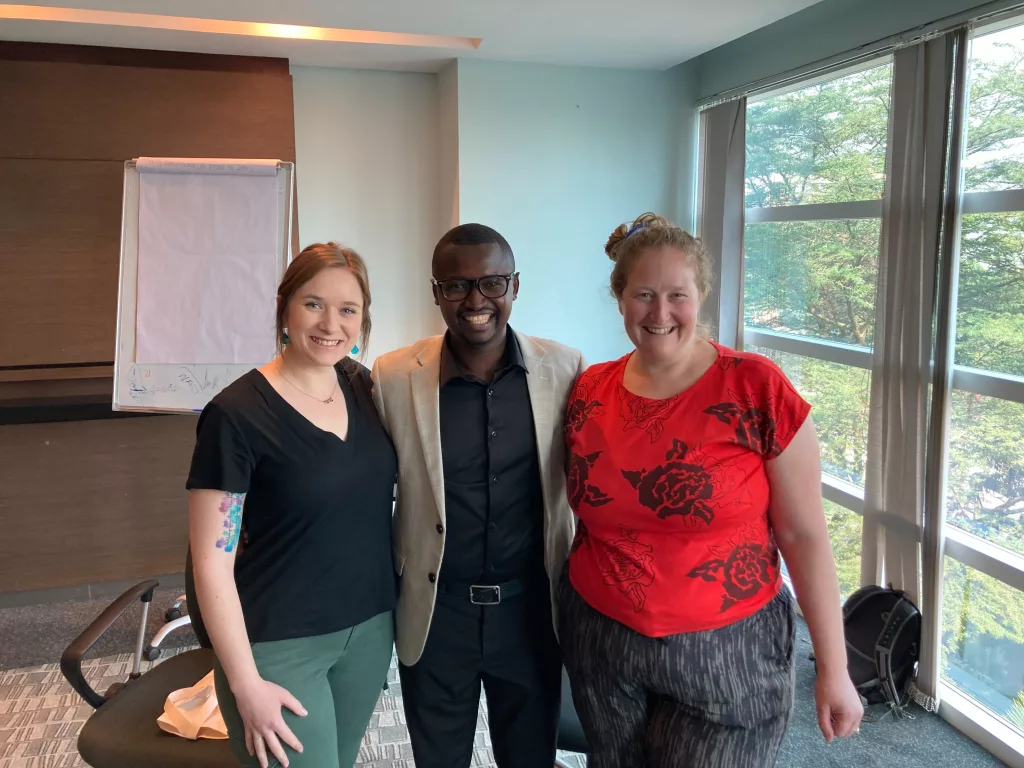
Our last day in Kigali was packed full of learning, exploring, and reflecting on the connections between international and local development. We started the morning with a truly amazing panel of Rwandan alumni of the Hebrew University of Jerusalem’s International Development (Glocal) masters program. Alumni Jean Claude Muhite, Ernest Ngabo, and Espoir Serukiza shared their experiences with the multitude of development projects they have implemented here in Rwanda.
Anna and I had the pleasure of speaking with Jean Claude about his most recent work with implementing a program called GiveDirectly, which facilitates unconditional cash transfers to people living in extreme poverty in Rwanda. He reminded us that many people living in extreme poverty know what they need, they just don’t have money to access it. And often they don’t need a program run by an international organization, they need an unconditional cash gift so they can implement their own solutions. The lessons in humility have been constant for me.
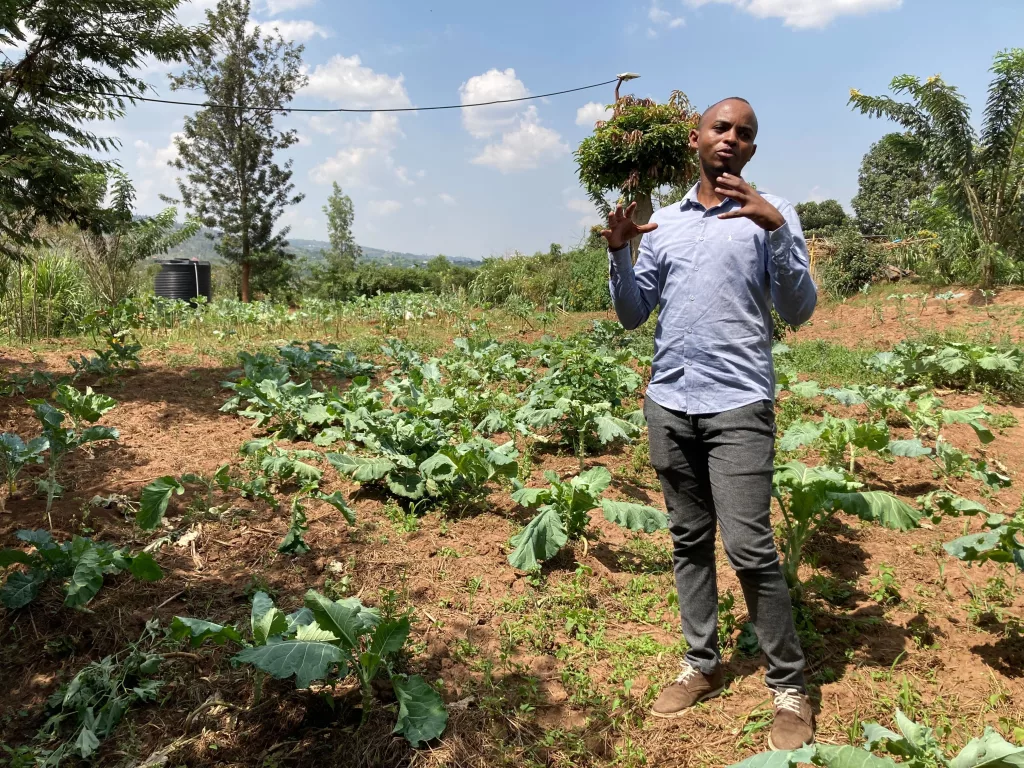
After the panel we traveled to Gardens for Health International, a working farm and education center that runs multiple programs to address malnourishment. Prior to Belgian colonization, the traditional Rwandan diet was nutritionally dense and diverse. The Belgian government’s forced agricultural program depleted the soils, introduced less nutrient dense foods, and prioritized farming for export. Gardens for Health International utilizes and teaches regenerative agricultural methods and partners with local mothers to provide sustainable solutions to malnutrition. We ate a delicious lunch of fresh vegetables and fruits and toured the beautiful land.

We then returned to Kigali and spoke with Clementine Mukamana, President of Junior Chamber International Rwanda, and Neville Ndahiro. Clementine and Neville are both leaders in the work to end gender based violence in Rwanda. They shared their experiences participating in training with OLAM partner El HaLev, gave us a small sample of their training, and another reminder that the best kind of cross-cultural collaboration involves deep listening and humility. Then, Clementine and Neville offered to walk around the neighborhood with us to share some very cool sights near our hotel. I’m overwhelmed by the generosity and hospitality of the many Rwandans who have shared their time and energy with us.
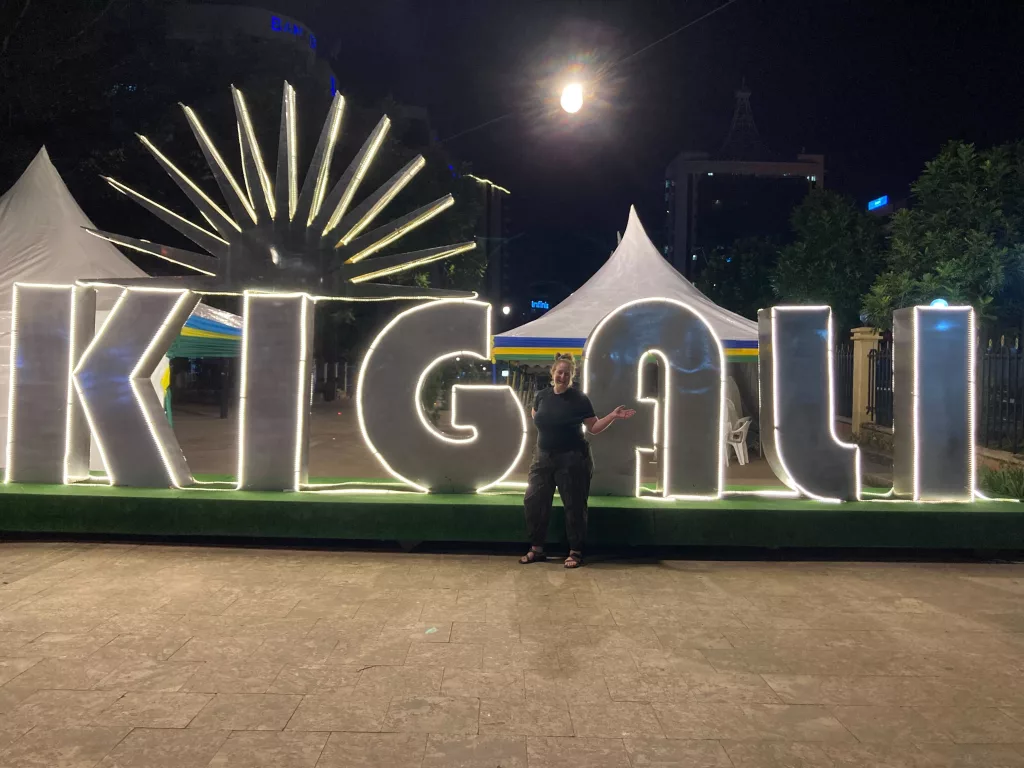
My main takeaway from today is the collective and communal responsibility in Rwandan culture. Success seems to be far less of a personal, individual achievement, and much more of a communal one. I think our students have so much to learn from the young people who are rebuilding this country (Rwanda has one of the youngest populations in the world). The conviction that the success of Rwanda, and Rwandan people is founded in the the culture of communal responsibility, is something that we and our students could learn and benefit from.
Wednesday, January 18
Today was a long and hard day. We began with a conversation on our obligation as Jews, in a new position of relative privilege in the world. How does that privilege impact our obligation to do good in the world? These questions set the stage for our visit to the Kigali Genocide Memorial museum. The Memorial is a mass burial site for hundreds of thousands of genocide victims, as well as a museum detailing the genocide in Rwanda and genocides around the world, including the Holocaust. The exhibits were educational, disturbing, horrifying, and at times unbearable. This is such recent history, less than 30 years ago. And yet, I am continually impressed by the Rwandan people we speak to, who emphatically agree that the genocide was horrific and wrong. I think we can learn a lot in the U.S. about admitting mistakes and moving towards reconciliation.
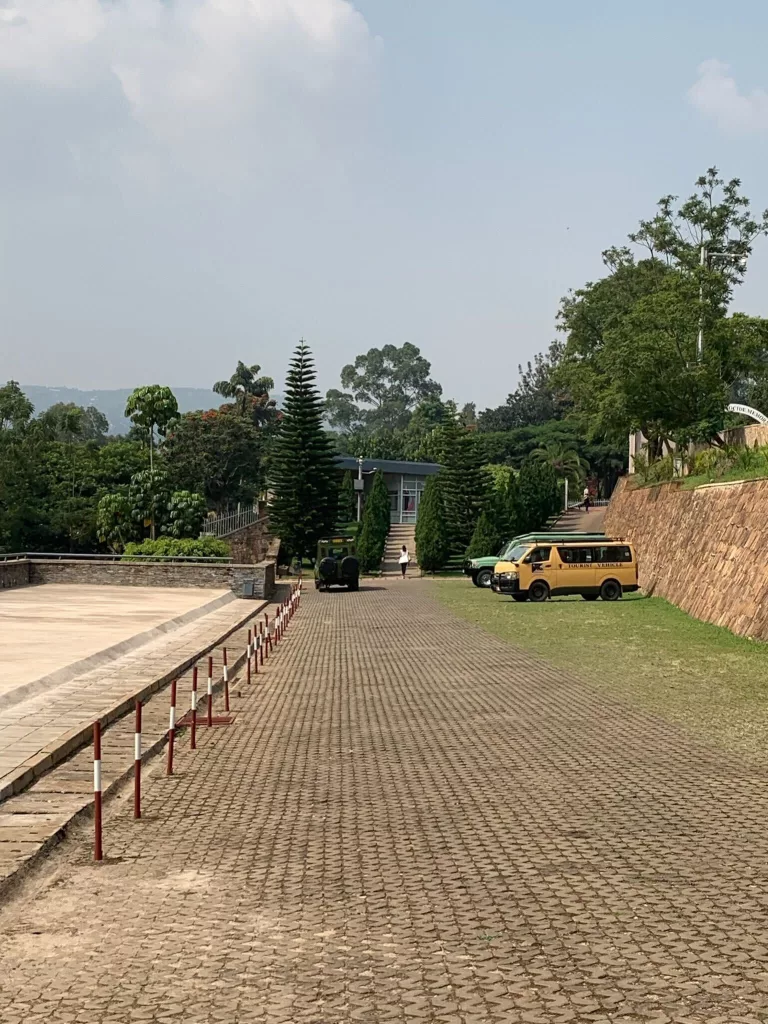
After the museum we travelled to a reconciliation village in a rural area outside of Kigali where survivors, refugees, and perpetrators live together. Village members generously shared their stories with us. It was overwhelming to witness the capacity for both repentance and forgiveness from them. They also had questions for us as Jews; they wanted to know if we could forgive the Nazis, if we had chosen to forgive in order to heal ourselves.
We ended our day with dinner with the Israeli ambassador to Rwanda and many unanswerable questions about obligation, Belgian colonization, forgiveness and building the world as it should be.
Tuesday, January 17
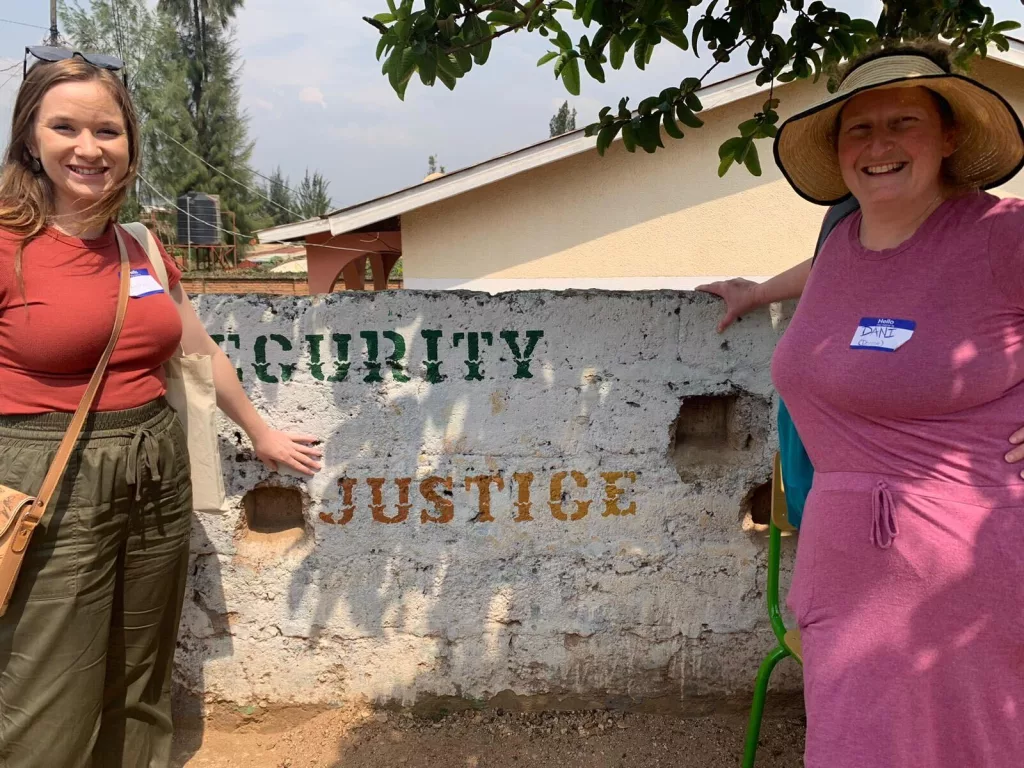
We had a really inspiring first day in Rwanda. We started with learning about the very incredible work happening at MindLeaps, an NGO that uses dance as a method to build self-esteem, self-efficacy, and sustainable livelihoods for young people.

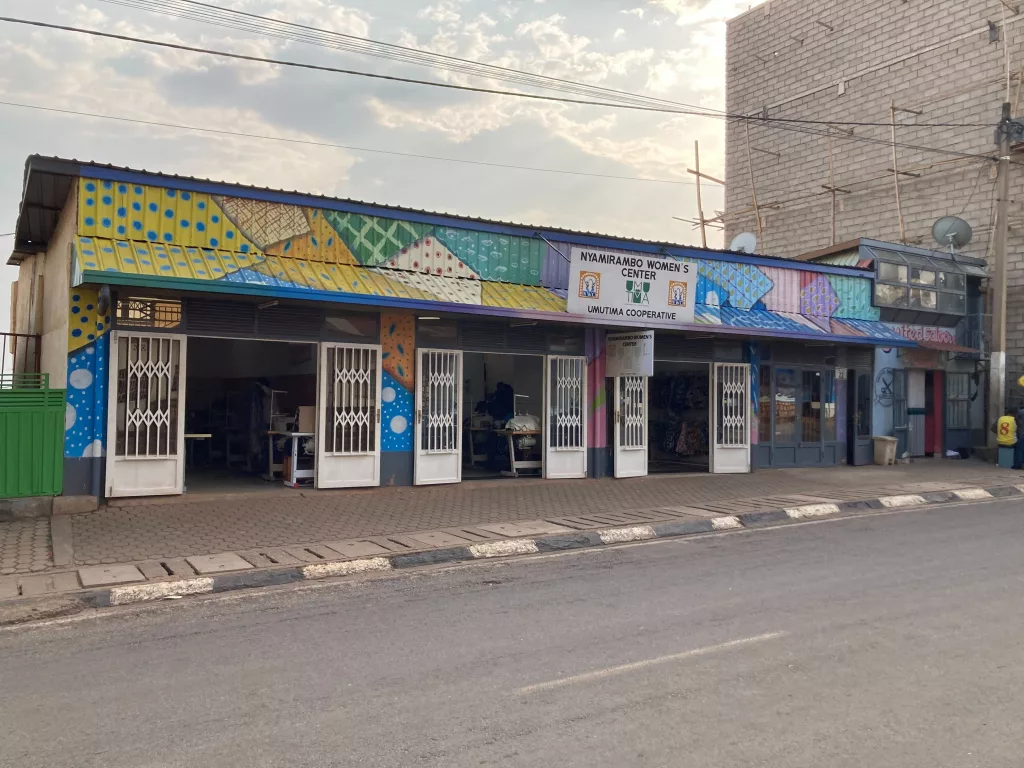
We then toured the Nyamirambo neighborhood with the Nyamirambo Women’s Cooperative, a model of collective empowerment that has provided education and livelihood training and support to more than 5,000 women. Rwanda leads the world in implementing gender parity in public life, with women making up 60% of the country’s parliament!
One of the most inspiring speakers we heard from today was Isabelle Kamariza from SolidAfrica she reminded us that Africa is solid, and Rwanda in particular is a resilient, brilliant, and innovative country.